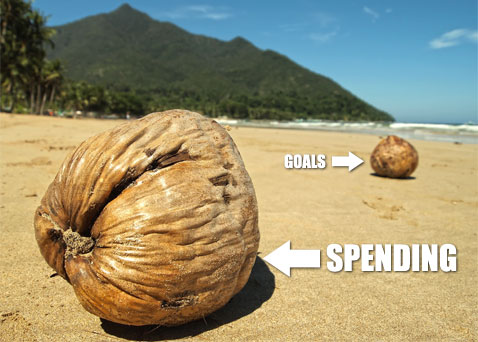My husband is finishing up his Ph.D. this month. His defense is scheduled, and everything should be wrapped up by the beginning of May. This means, of course, that he will be looking for a job. He has already applied for a few jobs, and has been looking for openings, but many potential employers (mostly universities) want to see that he already has the Ph.D. Even though reports are that the job market is improving, things are still tough out there. Which is why we're looking for advantages. One of these advantages is going to conferences.
Projects my husband has been involved in have been accepted for presentation and exhibition at various conferences, although he doesn't always present it himself. Conferences add something to your CV, and they offer chances to network. One of these conferences is taking place in less than two months, in Madison, Wisconsin. My husband isn't sure he wants to go, since it will cost about $600. He's already been accepted to present, but he's thinking that if he doesn't go, he can use that money to buy an iPad. Here's how our conversation on the subject went:
Him: “I want to buy a nice laptop and iPad more than going to that stuff.” (His current laptop actually belongs to the school and he has to give it back at the end of the month. He can't use mine for personal reasons because it has already been deducted as a business expense.)
Me: “We've already budgeted in a laptop for you. We've been saving up for it.”
Him: “It would be nice to have an iPad. I doubt I'll get a job by going to the conference.”
Me: “Well, a presentation at ISSRM looks better on your resume than an iPad.”
Him: “True.”
Me: “If we're going to spend $600 on something, I'd rather have it be something that could potentially advance your career, rather than something we're pretty sure won't.”
Does Your Spending Help You Reach Your Goals?
When deciding whether an expenditure is worthwhile, I like to consider whether or not it will help our family reach a goal. It's true that one of our goals is to have a tablet computer with a low-end data plan so that we can access the Internet from anywhere, comparing prices while shopping, or looking for restaurants while traveling. However, this goal has a lower priority than helping my husband get a job.
At the conference, he will have the chance to meet other people and network. This could, potentially, help him find a job. On top of that, the date of the presentation shows that he was doing something after finishing his degree. In a world where you are practically unemployable if you have been out of school and jobless for more than six months, an international conference presentation can buy you a little time. In my mind, the chance that something will help my husband's career is more important than a fun gadget. After our conversation, my husband admitted that my argument had merit. So he's going to Wisconsin.
When you are making similar decisions, it's important to weigh the pros and cons. Consider what is more likely to help you in the long term. Consider your financial priorities and goals, and choose to use your money in a way that helps you move forward on the path to financial freedom.
What process do you go through when trying to make spending decisions? Tell us about it in the comments!

